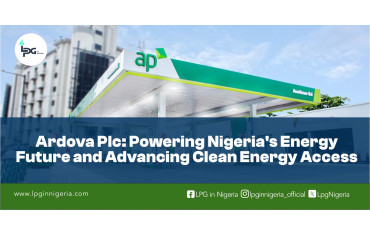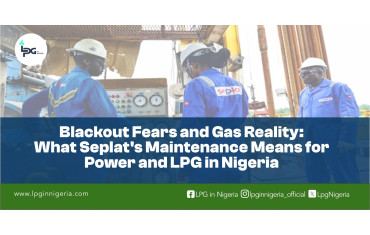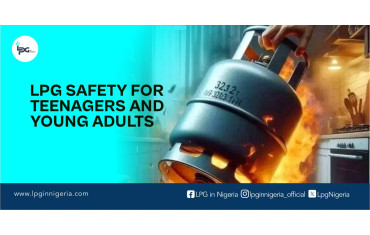- 4572
- 0
Sharing Ideas and Updates on LPG in Nigeria and related information to enable effective collaboration within the LPG Value Chain
How Autogas Adoption Can Drive Sustainable Economic Growth In Nigeria

The clarion call for embracing gas (LPG) as a primary fuel for vehicles has soared to the forefront of discussions among industry experts and stakeholders, envisioning Autogas as a potential game-changer in revitalizing Nigeria's struggling economy. At a recent Liquefied Petroleum Gas (LPG) conference in Abuja themed "LPG- Saving Nigeria from the Brink: Gas for Vehicles, Generators and Agriculture," prominent figures converged to emphasize the transformative impact of Autogas, projecting a potential turnover contribution of approximately N2 trillion.
Key stakeholders unanimously highlighted the indispensable role of LPG in Nigeria's evolving energy landscape, citing a notable 2.167% growth in LPG utilization from 2006 to 2022. Felix Ekundayo, President of the Nigeria Liquefied Petroleum Gas Association (NLPGA), expressed optimism about the industry's continuous expansion, particularly with the renewed governmental focus on the gas sector, envisioning a substantial contribution of up to N2 trillion.
Identifying LPG Autogas as a critical gas variant suitable for vehicle propulsion, Ekundayo underlined four key areas where Autogas holds immense promise, urging the government's concentrated attention on power, industrial, Autogas, and domestic sectors for gas utilization. However, amid the potential lies Nigeria's paradox in the gas sector, as articulated by Ekundayo. He stressed the imperative need for comprehensive policies spanning the entire gas value chain to address challenges, underscoring the urgency of tapping into the sector's full potential for economic and societal benefits.
Echoing this sentiment, Minister of State (Gas) Petroleum Resources, Ekperipe Ekpo, reaffirmed the government's commitment to bridging the energy transition gap promptly. He acknowledged NLPGA's pivotal role in the impressive growth of the LPG sector, culminating in over 150,000 job opportunities and a remarkable surge in LPG consumption from 60,000 tonnes in 2007 to over 1.3 million tonnes in 2021. Michael Oluwagbemi, Chief Executive of the Presidential CNG Initiative, echoed the necessity for Nigeria to pursue cleaner energy sources, advocating for collaborative partnerships and a multi-faceted transition towards various fuels, including LNG. He lent support to governmental initiatives, such as the National Transportation Mass Transit Policy, mandating the conversion of all commercial vehicles to gas by 2024.
The discussions gravitated towards the pivotal role of LPG Autogas in fostering a greener and more decarbonized transportation sector, as reiterated by Akachukwu Nwokedi, President of Nigeria Gas Association (NGA). He underscored gas's contribution to achieving "net-zero" emissions by 2060, emphasising its significance in environmental sustainability. Drawing insights from New Delhi's case study, gas development expert Sekhar Vajalla stressed the government's intervention role and the imperative nature of regulations for licencing and certifications. He emphasized the necessity for pricing conclusions, advocating for competition and prioritizing the domestic market.
Addressing regulatory impediments, Technical Adviser, Downstream to Minister of State for Petroleum Resources (Gas), Abel Igheghe, conveyed the government's dedication to transforming Nigeria into a gas-based economy. He acknowledged the need for revised guidelines to foster a more conducive environment for stakeholders. Tolu Longe, Head Process Control at Nigeria Liquefied Natural Gas Limited (NLNG), shed light on NLNG's pivotal role in infusing LPG directly into the domestic market, accounting for about 40% of Nigeria's total LPG consumption. She revealed NLNG's plans to ramp up volumes, projecting an injection of 650,000 to 700,000 tonnes of LPG soon and a targeted increase in capacity by about 35% through the NLNG Train 7 Project, aiming for approximately 1 million tonnes per annum.
Providing historical insights, Joy Shaiyen, Coordinator of the Women in LPG Global Network, Nigeria Chapter, navigated through the sixteen-year trajectory of LPG in Nigeria. She spotlighted the significant impact of subsidy removal on kerosene, resulting in decreased imports and a notable shift towards LPG. Shaiyen advocated for the active involvement of rural women in the energy transition, suggesting measures like subsidizing cylinder acquisition for rural communities and leveraging funds for conversion initiatives. She stressed the need for a minimum percentage of women's participation in intervention programs, outlining strategies for inclusive and sustainable energy adoption.
The discussions at the conference underscored the potential transformative power of LPG Autogas adoption in Nigeria, not only in economic resurgence but also in environmental sustainability and societal development. The collective consensus emphasized the urgent need for cohesive policies, collaborative partnerships, and concerted efforts from governmental and private sectors to propel Nigeria towards a gas-powered future.
















0 Comment.